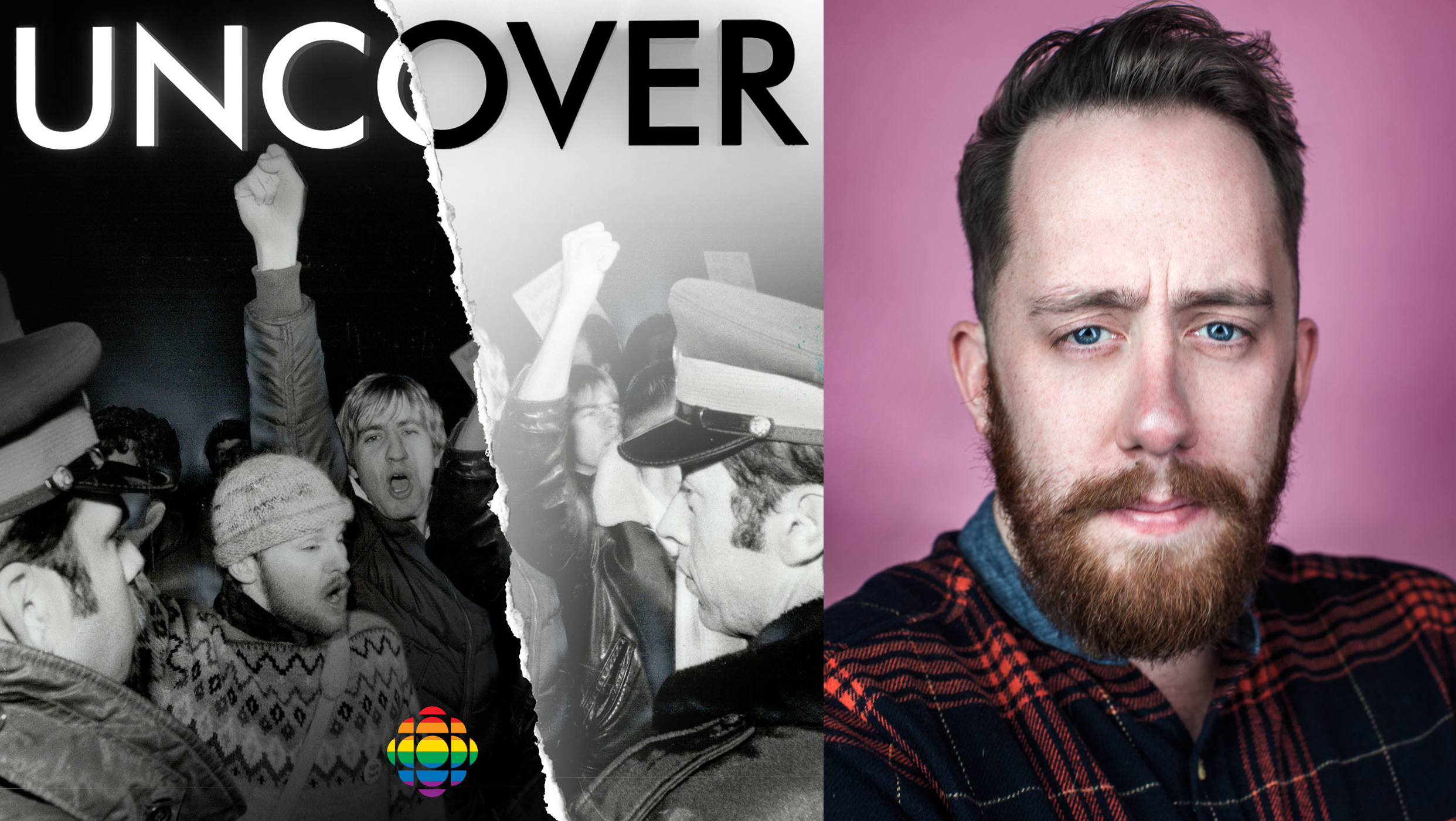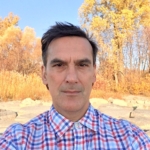In 2010, men began disappearing from Toronto’s gay village. The mystery spawned horror. We now know, that over the course of the next eight years, Bruce McArthur murdered Skandaraj Navaratnam, Abdulbasir Faizi, Majeed Kayhan, Soroush Mahmudi, Kirushna Kumar Kanagaratnam, Dean Lisowick, Selim Esen and Andrew Kinsman.
Journalist Justin Ling started investigating the disappearances in 2015, writing first for Vice then for the Globe and Mail. Beginning April 2, Ling, a former contributor to Xtra, hosts Uncover: The Village, the third season of the CBC podcast series. Ling uses McArthur’s murders as a launching pad to investigate a score of Toronto cold cases involving murdered gay men that date back to the 1970s. He is also writing a book due out later this year from McClelland and Stewart.
The McArthur case fractured an already brittle relationship between Toronto police and the city’s LGBTQ2 communities, bringing renewed attention to how police mishandled these and other cases of missing and murdered gay men. Xtra spoke to Ling about police failures, community anger, his shocking research into the dark shadows of LGBTQ2 history in Canada and why this podcast — and this case — is personal.
Your podcast movingly humanizes the eight individual victims. How did your reporting change as you got to know the friends and families?
For some of these people, this was an eight-year process. When you hear the friends and families of these guys, you’re hearing them remember their friend, how wonderful he was. But you’re also hearing just the exhaustion in their voices and how hard it’s been all those years. To me that always hit home hard.
The two days of victim impact statements during the trial must’ve been particularly rough.
There was a moment when a friend of Andrew Kinsman’s — his neighbour, who basically shared a wall with him — describes sitting there just listening for him long after he was gone. That was like a punch in the gut.
And the case of Kirushna Kumar Kanagaratnam always really stuck with me. This guy came over on MV Sun Sea and I covered some of the MV Sun Sea stuff when it happened. I remember the anger and the sort of disgust at the decision by the government at the time to lock these men up as though they were some security risk.
To imagine this guy having to flee civil war [in Sri Lanka] — get on a ship where there was no guarantee he would make it alive, get to Vancouver, be detained for months on end as though he was a terrorist, and then to have his refugee claim denied — to wind up in Toronto where he was fearing deportation back to the place where his life is at risk and to then be abducted and murdered by a serial killer. That is horrific. The impact on his family, many of whom also had to flee civil war, many of whom also had perilous journeys to other countries, that was really hard.
Is there a pattern of disregard in the police response to the case? Is this an example of homophobia or racism?
It’s not my place to say, yes, it was homophobia, or no, it wasn’t. I have to look at what’s in front of me. There are a few things that really stick out. For one, from start to finish, Toronto police have a horrible track record on missing persons cases.
After [serial killer] Robert Pickton was arrested in Vancouver, former BC Supreme Court Justice Wally Oppal wrote an absolutely exhaustive report that said if you want to address violence against marginalized people, long-term missing persons cases and cultural blinders by police, here’s what you need to do. Toronto police ignored a wild number of those recommendations.
One of the recommendations was you can’t really claim to be investigating missing persons cases fulsomely if you don’t have a dedicated missing persons team. Vancouver police, the RCMP, Hamilton police, a number of police departments across the country heeded that advice and set up dedicated missing persons units. Toronto police didn’t. There’s no question that hampered this investigation. So there are systemic policy failures there.
With McArthur, there were very few resources dedicated to [the first] three missing persons cases that looked really damn similar and that had all the hallmarks of a serial killer. I think the reality is Toronto police don’t take missing persons cases seriously enough, especially missing persons cases of marginalized people like gay men and refugee and immigrant non-white communities.
How would you characterize the community response to this trial? Were you surprised at the depth of the anger, especially directed toward the police?
No, I learned never to be surprised at the depth of the anger, because I don’t know that it has a bottom. I think the community is frustrated. Some of that is frustration with itself for being a community where eight men can go missing and so few of them were noticed or had their causes championed to the degree to which they could have been. But the anger with police for not taking those cases seriously, for not sticking with them for all those years, for not connecting the dots, for making improper assumptions, for not following some of those leads I don’t know that there’s any bottom to the amount of anger you can feel over that.
At one point in the podcast you say, “This is personal.” How did you feel as a gay journalist covering the disappearances?
To some degree you don’t want to have to go walking through your community as the voyeur. You don’t want to show up to The 519 community centre, where your friends are actually grieving or protesting, and be the fly on the wall at the back. You’d rather not be there at all, or be there as the protester or the mourner.
Your reporting took a straightforward approach to the sexual elements of the case: the cruising, the websites, the bondage/BDSM. How would you characterize the mainstream coverage of that side of the case?
There did seem to be a little bit of pearl clutching and exasperation in the media. And that’s almost unavoidable. I mean, when the Toronto Sun covers any case involving anything salacious, that’s the tone you’re going to get. The foreign media of course is infinitely worse. I mean, no matter how bad the Sun is, thank god they’re not the Daily Mail.
Your podcast looks into cold cases of missing and murdered gay men in Toronto dating back to 1975. How much have attitudes changed between then and now?
It’s definitely changed. [With those earlier cases] there was a dismissive attitude of: you’re gay, you go to these bars, what do you expect? And some of these murders, they barely got covered at all. The idea that a murder would get so overlooked is galling. In the cases where there was an arrest, where there’s a trial, that coverage went rather over the top. If the killer said, “Oh he came on to me. He tried to sexually assault me. He tried to rape me. This faggot was out to get me,” the Toronto Star or the Toronto Sun would happily just type up every word he said in a sort of moral panic. And I think that led to a culture that accepted that if you killed a gay man, you would quite likely get acquitted.
Retired Justice Gloria Epstein has been named to lead an inquiry into missing persons cases. She has since asked to broaden her mandate to include the McArthur case. Do you know where that stands now?
My impression is that it’s not going to happen if they haven’t announced it by now. The fact that there’s not a clamouring for a public inquiry [into the McArthur case] is mind boggling to me. The fact that there’s not sustained coverage of Mayor John Tory for not expanding the external review’s mandate, and on Caroline Mulroney, the justice minister, and on Premier Doug Ford for not calling [an expanded] public inquiry is mind boggling. [Since this interview was conducted and written, it was announced that the inquiry will be expanded to include the victims of McArthur]
In some ways, you have shifted from journalist to advocate. Are you surprised at that?
In cases of that level of failure, it’s undeniable that [a public inquiry] is useful. One thing that bothers me about this country is that sometimes we just accept failure and don’t have the fire in us to change it. And I think my fear here was that there was not going to be that anger, that there was going to be a class of middle-aged straight journalists covering the story with the detached reverence of any other crime story. To me, that would have been galling. If there had not been a real connection between media coverage and the outrage in the community, there would be a real missed opportunity to change something. So I guess I saw that as my role — not as advocate and journalist, but as somebody a little more plugged in to the idea that anger can fix something.
People expressed concern for you when you were live tweeting from the courtroom, but you said you had a great support system. What does that look like?
I have a great partner at home who does not want to hear about any of this shit. And I think that is actually a saving grace.
Given the horror and the sadness of this case, where do you see opportunities for hope or for healing?
Community groups have found a whole new level of purpose for themselves. ASAAP [Alliance for South Asian AIDS Prevention] has become such an integral part of this story. They basically secured the external review. They’ve supported all the friends and families [of the victims] in a way that is still mind boggling to me. I think ASAAP is going to take what they’ve gained from this ordeal and use that momentum to do much greater things.
I look at this external review and I’m realizing that there are going to be dozens, if not hundreds, of future missing persons cases that are going to be resolved because police have finally set up the processes they need to deal with them properly. It remains to be seen what else is going to come from this. But I think it showed the community that there’s still activism that needs doing. I think it shook some people from their complacency.
Legacy: April 1, 2019 1:00 pmThis interview has been updated to reflect new developments in the external review of Toronto police missing persons cases.


 Why you can trust Xtra
Why you can trust Xtra


